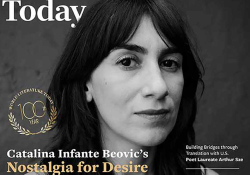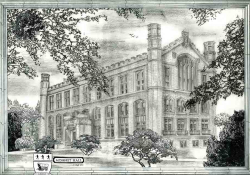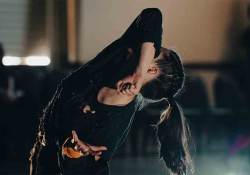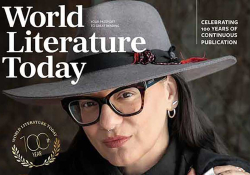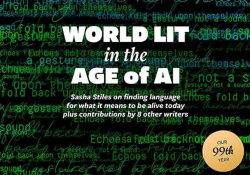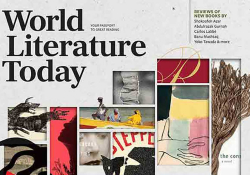Editor’s Note
You cannot continue to victimize someone else just because you yourself were a victim once—there has to be a limit. – Edward W. Said, “The Myth of ‘The Clash of Civilizations’”
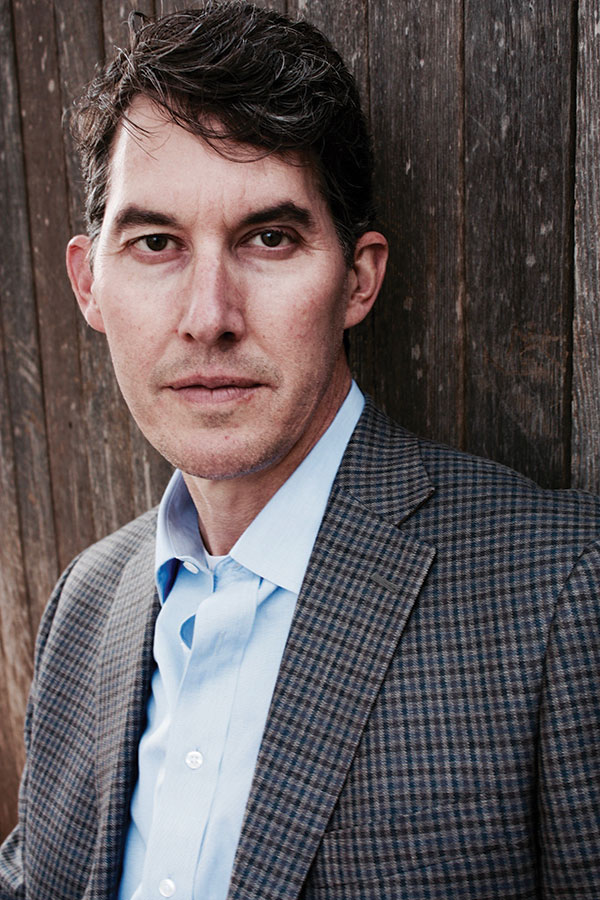 IN ITS LAUDED ninety-five-year publishing history, World Literature Today has never devoted a cover feature, let alone a dossier, exclusively to the literature, art, and culture of Palestine. Thirty-five years ago, the Spring 1986 issue of WLT—under the rubric “Literatures of the Middle East: A Fertile Crescent”—featured writers from Armenia, Egypt, Iran, Israel, Syria, and Turkey as well as survey pieces on Arabic fiction, drama, and women’s writing, but Palestinian writers were conspicuously absent from the lineup. Indeed, in Mona Mikhail’s essay introducing the issue, “Middle Eastern Literature and the Conditions of Modernity,” one of the most pivotal events during the modern era of the Middle East—the Palestinian Nakba that led to the creation of the state of Israel in 1948—isn’t even mentioned.
IN ITS LAUDED ninety-five-year publishing history, World Literature Today has never devoted a cover feature, let alone a dossier, exclusively to the literature, art, and culture of Palestine. Thirty-five years ago, the Spring 1986 issue of WLT—under the rubric “Literatures of the Middle East: A Fertile Crescent”—featured writers from Armenia, Egypt, Iran, Israel, Syria, and Turkey as well as survey pieces on Arabic fiction, drama, and women’s writing, but Palestinian writers were conspicuously absent from the lineup. Indeed, in Mona Mikhail’s essay introducing the issue, “Middle Eastern Literature and the Conditions of Modernity,” one of the most pivotal events during the modern era of the Middle East—the Palestinian Nakba that led to the creation of the state of Israel in 1948—isn’t even mentioned.
“Palestine Voices,” then, represents a long-overdue—and especially timely—attempt to remedy this deficit. As with other recent dossiers dedicated to so-called “stateless” literatures, like those of Catalonia and Kurdistan, WLT’s Summer 2021 issue recognizes an autonomous literary tradition that dates back centuries and now, in the diaspora, is one of the most cosmopolitan literatures in the world. Nearly two dozen of the most eminent Palestinian writers and poets are gathered here, along with the work of twenty renowned artists and photographers.
Guest editor Yousef Khanfar and I began planning the issue two years ago, in hopes of showcasing the very best that Palestinian culture has to share with the world. I would especially like to thank him for drawing on much of his life’s work to helping bring this Palestine issue to fruition. The photography double issue that he guest-edited in 2013 remains one of WLT’s best issues ever, but the current collaboration, featuring writers, artists, and photographers, surpasses even that achievement. Thank you, Yousef, for sharing with WLT’s readers your passionate belief in our common humanity.
In “Palestine Voices,” we present a continuum that reaches back to such legendary figures as Edward Said, Mahmoud Darwish, Ghassan Kanafani, and many more, with less attachment to the Nakba but more freedom for exploration and imagination. Some of the language used by Palestinians to describe the political situation they face, like occupation, apartheid, ethnic cleansing—especially in light of the violence in Gaza, the West Bank, and East Jerusalem in May 2021—might seem inflammatory to some, but the daily reality matches the rhetoric they use. In Sahar Mustafah’s story “The Bodies,” the deceased Palestinian men lying in a morgue relate the manner of their deaths: shot through the chest or the back of the head, suffocated by soldiers in the back of an armored truck, run over by a bulldozer. Mustafah’s brilliant literary sketch humanizes the men, helping us as readers to empathize with their humanity despite the unspeakably dehumanized fate of their bodies. As Najwan Darwish writes in his poem “The Shelling Ended,” it is as if “Forgiveness has ended, / and mercy is bleeding outside of time.”
Taken as a whole, however, the work by the writers featured here is not just a threnody of despair. Rather, through an emphasis on art and literature, it rehumanizes a people who have much to offer the world. The voices gathered in “Palestine Voices” speak a universal language: one of life filled with human dignity that celebrates a rich cultural heritage and vibrant present along with aspirations for freedom, justice, and hope for a better future.
We are grateful to Interim Senior Vice President & Provost Jill Irvine, Vice President for Research & Partnerships Tomás Díaz de la Rubia, and College of Arts & Sciences Dean David Wrobel for generous subventions in support of this issue.

